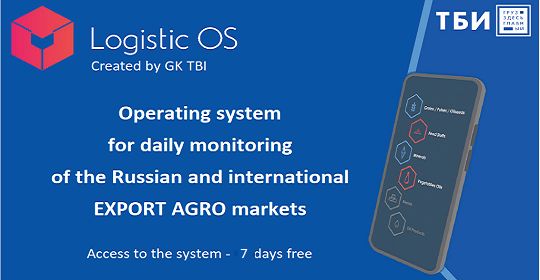In the last week, there has been a trend towards a transition to an increase in both domestic and global wheat prices.
As pole.rf notes, this week in different regions of the Russian Federation an uneven increase in wheat prices was noted.
For example, in the south of the country they rose by 250 rubles per ton, reaching a mark of about 12 thousand rubles.
In the center the rise in price amounted to 100 rubles per ton, the final prices were set at the level of 9 thousand rubles.
In Siberia there is the same strong rise in price as in the south: by 250 rubles per ton, up to 10 thousand.
In the Volga region the price of wheat has not changed significantly over the past week and is also about 10 thousand rubles.
Export prices for Russian grain are also growing, in deep-water ports in the coming weeks we can expect wheat at 14 thousand rubles per ton, Pole.rf notes.
There are several factors in favor of this:
— Reduced export duty. Recently, the Ministry of Agriculture revised the formula for calculating this duty, raising the cut-off price from 15,000 to 17,000 rubles.
— Devaluation of the ruble, which in recent days has noticeably weakened against the dollar and the euro.
All this plays into the hands of farmers, because it allows them to receive more rubles from each ton of wheat sold.
True, there are also restraining factors that do not allow grain prices to rise much.
The first of these factors is the high level of stocks left over from last harvest as this year’s harvest approaches.
When it is harvested, it will certainly cause further price cuts as supply increases substantially.
World grain prices are also growing
As the US Department of Agriculture noted, there is a problem of large carry-overs around the world that put pressure on prices.
According to the US agency, this year the level of final residues of wheat will be at the level of 271 million tons, despite the fact that the figure of 264 million tons was previously announced.
At the same time, there are also factors here that will provoke an increase in wheat prices.
— Dry weather in the north of Europe, which can negatively affect the harvest.
— Long rains in China prevent farmers from harvesting and reduce its quality.
— Increasingly high probability that the Ukrainian grain deal will not be extended, as a result, a large amount of grain from this country will not be able to enter the market, which will significantly reduce the supply.
By the way, last week world grain prices were actively growing, reacting to the destruction of the Kakhovskaya hydroelectric power station, which could cause flooding of fields.
However, then the prices for wheat returned back: it is not this crop that should mainly suffer from this incident, but rather corn.

